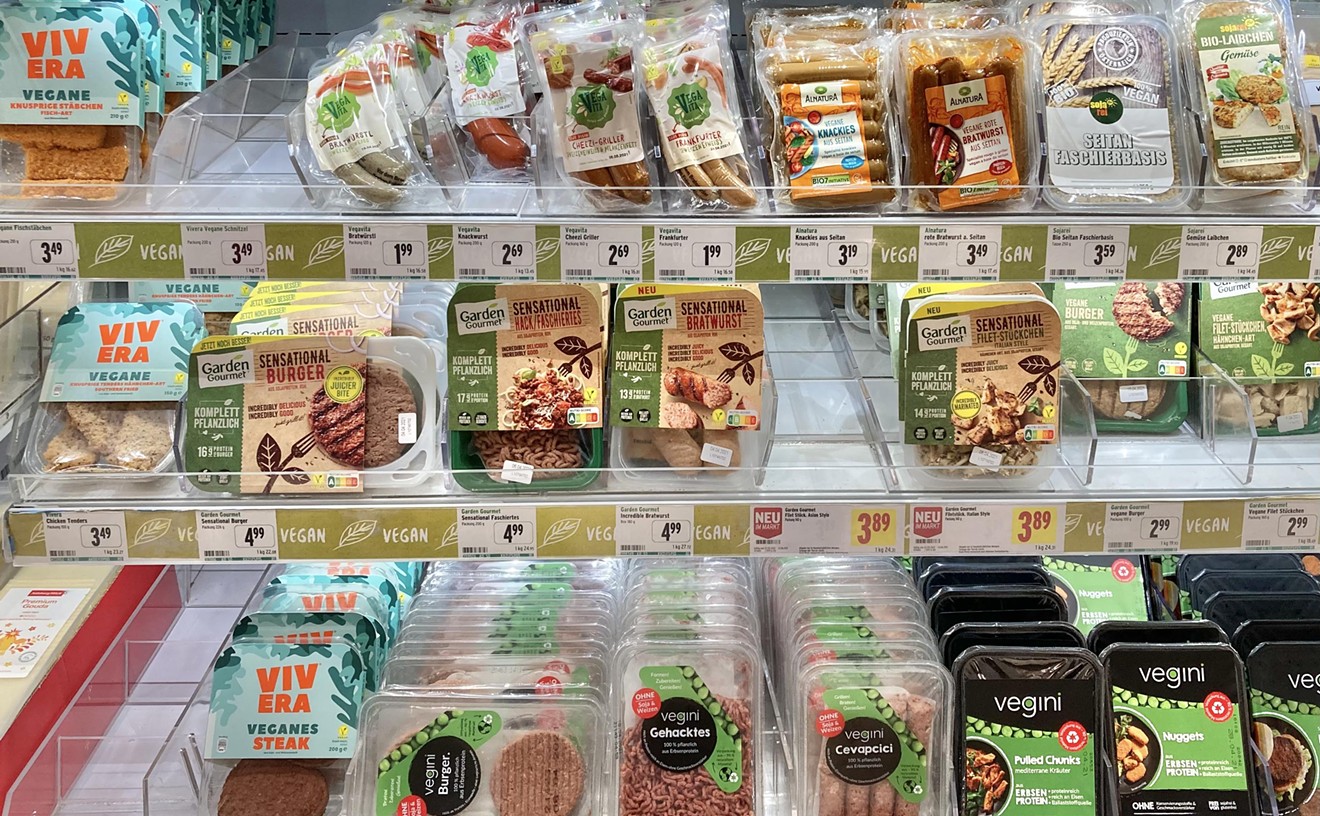Without Tupperware containers or Saran wrap, a concoction baked in a hard-shelled crust was the most convenient way for a worker to carry a nourishing meal. Traditionally, a miner would leave a corner of his pasty to appease the Tommyknockers, the evil spirits of the mine.
Linda Carnahan, the great-granddaughter of a Cornish immigrant who landed in the Arizona mining town of Globe in 1904, is secretary of the Arizona Cornish Society and edits its monthly newsletter, The Breow Gober ("The Copper Hills"). She'll once again be selling Cornish pasties this month at a booth at the Highland Games, held each February on the Mesa Community College grounds on West Southern Avenue.
"This recipe is the one I was raised on," she says of the recipe that has been in her family for generations. She uses a good cut of beef, such as steak, along with potatoes, onions, butter or suet and parsnips. Some cooks substitute turnips for this last ingredient, but Carnahan says these are too strong in flavor for an authentic Cornish pasty.
Carnahan keeps in touch with historical societies in Great Britain researching the migration of the Cornish and their descendants, and noted that Cornish cooks were known to use a variety of fillings, including eel, mackerel and, in times of extreme hardship, even grass.
"They used a different kind of flour, and the pastry was so tough the miners couldn't eat it," she says. The pasty's crust was probably conceived as a container for the filling, to be discarded after the contents were consumed.
Cornish families tend to be particular about what should or should not go into a pasty. The George & Dragon Restaurant and Pub on North Central Avenue in Phoenix serves a Cornish pasty with a delicate, flaky crust. My Cornish husband makes a thicker crust and adds a dab of Marmite, a British spread made from yeast, to each beef pasty he makes. His family also has a recipe for a bacon and turnip pasty, which requires not the streaky, fatty bacon sold here but a leaner variety similar to Canadian bacon.
The Cornish also migrated as far as South America, and a variation of the pasty is found in two mineral-producing countries in that region: tin-mining Bolivia and copper-mining Chile. The Bolivian salteña includes peas and raisins and is traditionally served in the morning with a beer or other cold drink. The Chilean empanada is made with the addition of a hard-boiled egg and a single unpitted black olive. There is also a smaller, fried variety with a melted cheese filling.
Chile's late socialist president Salvador Allende used to say that his country's revolution would have the flavor of "empanadas and red wine." I've found packaged empanadas in the freezer section of the supermarket with "Southwestern-style" fillings of chili and cheese. Having lived in Chile and eaten the real thing, I've been reluctant to sample them.
Unfortunately, it is possible to travel to the land where the pasty-saltena-empanada originated and suffer culinary disappointment, or worse. A few years ago, I traveled to Cornwall and visited Tintagel, the legendary site of King Arthur's Camelot but something of a tourist trap. My family stopped for lunch at a stand offering "authentic Cornish pasties, baked by a little old Cornish biddie."
We should have known better. The filling contained a strange-tasting meat that we suspected was from a grade of beef no longer sold in Great Britain since the outbreak of mad cow disease. We had better luck finding good Cornish pasties in pubs and established takeout places.
If you can't get to Cornwall, your best bet for finding a decent pasty is to scour the Valley for the rare eatery that offers it. Or head for the Highland Games on February 24 and 25 and look up Linda Carnahan.
Mary Helen Spooner is a former foreign correspondent who is the only native-born American in her family.










